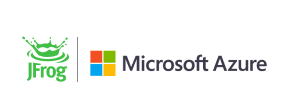I’m Brittany Woods, and I am a manager of the server automation team with H&R Block. So my team is specifically responsible for creating automation platforms that enable our development squads to move faster and more autonomously, to kind of push them and shift them toward being more autonomous in all of the things that they’re doing. We were historically an operations team, so basically what we did was we took our historical operations teams, we’re continuing to provide that type of support as we identify areas that we can improve and automate, but we’ve shifted our focus to be more developer-centric and more automation-centric to provide that enablement across the organization. Because again, we want to cut ourself out of the equation. We don’t want somebody to have to ask for our help and us be that bottleneck. So my team works in concert with another platform team that’s providing Terraform Enterprise as a platform for the development squads. And then my team kind of comes in behind that and provide more of the configuration management compliance automation for the teams.
And so what we’re trying to achieve by that is not only teach them to fish and allow them to get what they need when they need it, but we’re also trying to make it easy for them to do so, so they don’t have to expend a lot of time and resources getting the things they need because what really want or what they should be focusing on is products and customer experience and all of those things. So we don’t want them to have to get bogged down in all of the governance and all of the stuff that we’re providing. H&R Block, they’ve put a lot of time and a lot of focus on what we can do to make the organization better and stronger in terms of transforming into a modern platform.
So as part of that, we, as an organization, have had a heavy focus in almost every facet of the business to participate in that DevOps transformation to allow our teams to be autonomous and to move faster and innovate faster. So that’s really in both our short and our long-term vision is what can we do to enable that to happen? What can we do to enable these teams to innovate and to drive the business to a successful modern platform?
H&R Block is very heavy in the Azure space. We have an excellent partnership with Microsoft. So we are kind of in that spot where we are transforming the organization and moving workloads into Azure. We have a lot of teams leveraging various services within Azure. A lot of our pipelines and underlying automation that my team is specifically responsible for lies within the Azure DevOps platform, so we’re really heavy utilizers of ADO pipelines, for example. I think one of the key benefits that we’ve realized up to this point is having that centralized location. So whenever we’re having these conversations with teams, it’s not, well, you need to go grab this package from here and this package from here. And all of that knowledge that wouldn’t necessarily be apparent. So it’s made that easier, exponentially easier because we can just say, oh, that’s stored in JFrog, or, oh, we can put that in JFrog. So really it gives some consistency.
The other thing that we’ve found or that I’ve found to be a benefit is how we’re able to manage granularly even the ability for teams to interact with the platform. It’s easy to have the various roles. So my team, we obviously manage the platform so we have more roles. It’s very easy to have roles for development teams to be able to do what they need to do in the platform and not have all of the other bits. To be able to have API access and things like that, it’s very easy to give everyone what they need from the platform and it’s very easy to manage that from a managing/governing team perspective. So that’s the other benefit.
And then I think for a third benefit, and it’s not something that we’ve fully realized yet because we’re still growing, we’re still building out this platform and integrating it within Chef, for example, but it’s the ability to really aggregate all of our stuff into that single centralized location. So I talked about in point number one about it being a good platform to just tell people, hey, you can put stuff here, right? So building that out in aggregate and having a platform available to us to be able to say, oh, well, you might not be leveraging it for Chef’s use case, but here you can store your war file here, or you can store this library here. One thing that we’re seeing is RubyGems, having a platform that we can mirror RubyGems for some of our segmented infrastructure. So, it’s nice and beneficial to have a platform that’s so not only available but extensible that you can use it for so many different things. So that’s benefit number three, I think.
Thank you a lot, actually, for including me in this. I always love sharing my journey in hopes that it will help somebody else. But I really believe in what H&R Block is doing. A lot of organizations say they’re doing the things, but aren’t necessarily doing the right things to enable their people. And up to this point, I mean, I’ve only been there for a year, but up to this point, it very much seems like H&R Block is willing to invest in their people to upskill them and to enable them to make themselves and the organization a better place, so I’m always excited to share that as well.









